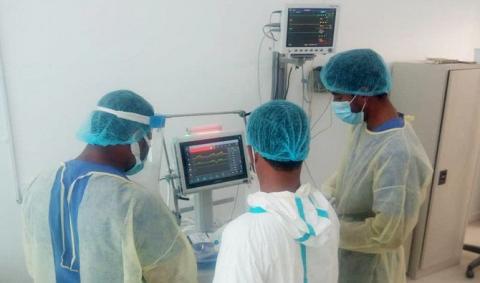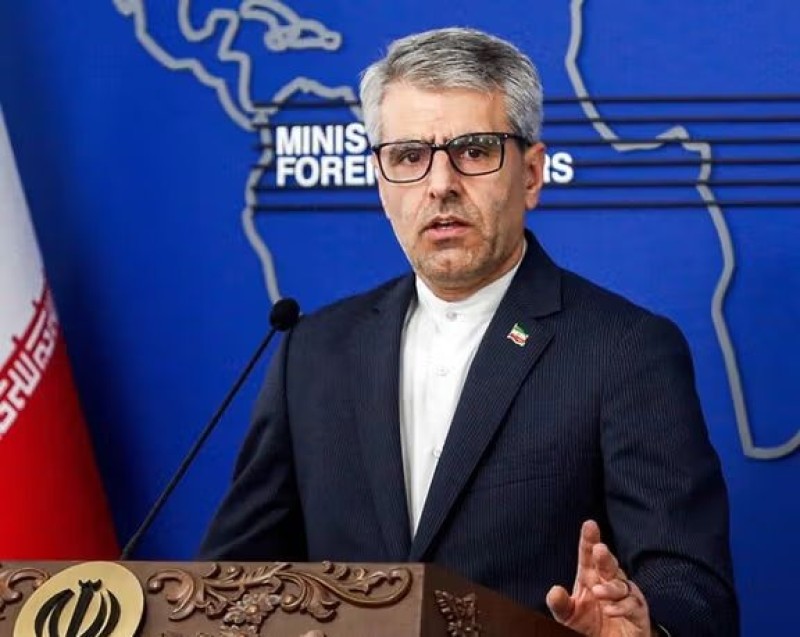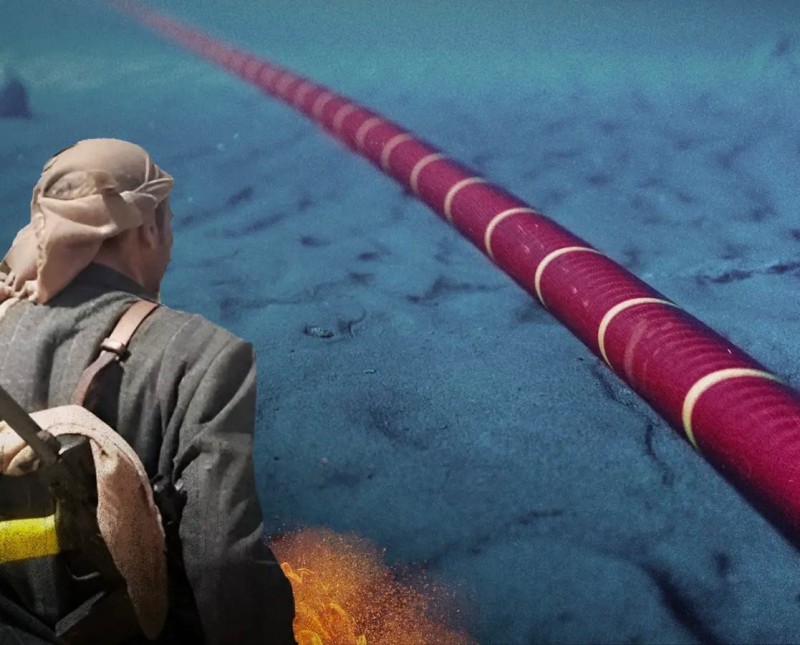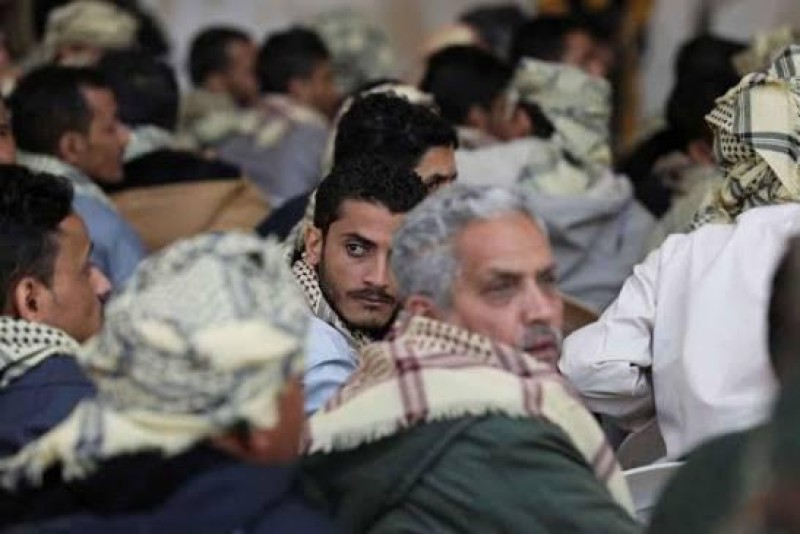How Sewing Face Masks is Helping Displaced Women in Yemen


Six years of conflict, disease outbreaks and extreme weather conditions have crippled Yemen’s economy. According to the World Bank, more than 40 per cent of Yemeni families have lost their primary source of income over the past four years. Most people who were previously able to live a comfortable life are now struggling to afford their daily necessities.
Among those suffering the fallout of the economic decline are the displaced. No matter how well-off they were before, having to leave behind their homes, jobs and belongings to start over has left millions of people in dire need of all forms of humanitarian assistance.
“My younger brother has a genetic red blood cell disorder called hemolytic anemia and my family cannot afford his medicine. So, I am always looking for ways to help them financially,” said Asmaa Mohammed.
The 20-year-old was originally from Jabal Sabar, in Yemen’s Taizz governorate, and now is displaced.
“I live with my elderly parents, my 14-year-old brother (he’s the one who is sick) and my little sister in Al Waqeer site in Ibb. We have no source of income except whatever humanitarian organizations provide us with,” Asmaa explained.
After COVID-19 broke out in the conflict-stricken country, job opportunities—particularly casual labour—began disappearing. To ensure survival, families have been sharing responsibility amongst their members for providing for their household.
Seeking to empower displaced women with the ability to earn an income, the International Organization for Migration (IOM) partnered with the Kingdom of Saudi Arabia (KSA) to launch a facemask-making project in 35 displacement sites across Ibb and Marib governorates.
“We received a lot of requests from displaced women asking for support to start small projects,” explained Sabah Al Qubati, a member of IOM’s Camp Coordination and Camp Management (CCCM) team in Marib. “IOM responded to the call and taught them how to make masks, helping them earn an income while preventing the spread of COVID-19.”
Around 45 women in Ibb and 60 women in Marib took part in this IOM-KSA initiative. The women received training, as well as the tools and materials to make the masks.
“I was happy to hear about the mask-making project. I didn’t know anything about sewing, but I learnt fast,” recalled Asmaa.
IOM camp coordinators asked each woman to make as many masks as they could. So far, the total number of masks across the two governorates tops 32,000. Upon completion of the masks, IOM provided the women with modest incentives for participating.
Asmaa really wanted to help her sick brother, Osama, who is not able to study because of his illness and, sadly but not uncommon in Yemen, works as well.
“I spent nearly eight full days making masks and I was able to produce 150. When I finished, I received an incentive from IOM and bought some goods for my brother so that he can sell them in his kiosk and earn money for his medicine,” added Asmaa.
In the same vein in Marib, Nada was looking for a way to help her family.
“I was looking for any type of work to provide for my children,” said Nada, explaining how she came to participate in the project. “So, I took part in this mask-weaving project. I learned how to make proper masks and I received sewing tools.”
Nada is a displaced mother of three from Hajjah. When her husband was killed in a market eight months ago, her family lost their sole provider. She urgently needed to start earning a living even while dealing with her loss.
Nada understandably was traumatized over her husband’s death. But she knew that she had to be strong for their three young children: Fatema, Jana and Omar. She started by making dresses and school outfits for neighbours, but she was barely scraping by. After joining IOM’s mask-weaving activity, she was able to buy her children food and even some school equipment.
Not so far from Nada’s temporary home in Marib, four-month-pregnant Nabeela lives with her husband Abdo and nine children.
Also, originally from Ibb, Nabeela was displaced with her family three years ago. Her husband has a back injury, which hinders him from working, so she has no choice but to find a way to feed their children.
With nine children to provide for—and a sick husband to care for—Nabeela struggled. Her 18-year-old daughter, like her mother, has lost her own husband—while on the verge of having her first child. The soon-to-be grandmother, who was also expecting another child, was extremely worried about her daughter’s pregnancy, not least of all about paying her medical expenses.
“I made over 700 masks because I am in desperate need of cash. My husband even helped me make them, and I am willing to make more,” Nabeela explained.
“After I received payment for the masks, I was able to buy clothes and school equipment for my children and save some money for my daughter’s delivery,” she added, feeling a bit of relief.
After receiving the masks from the women, IOM distributed them to displaced families who are at greater risk of being infected with COVID-19. During the distributions, IOM teams conducted COVID-19 awareness sessions to share important information with displaced communities on protection measures and how to properly wear the masks.
“After I received payment for the Asmaa, Nada and Nabeela are just three of the women who participated in this project. All of them wish to have a sustained, stable source of income to continue to provide for their families.
And the project isn't over yet; IOM has identified nearly 160 more women in Marib for a second round of training and support. In fact, this activity comes in addition to another mask-making project that IOM and KSrelief partnered on in Marib and Hadramaut through which over 50,000 masks were produced, bringing the total number of masks made with both entities’ support to over 80,000.

Tehran — Iranian Foreign Ministry spokesman Ismail Baghaei has voiced concern over the latest developments unfolding in Yemen, particularly i…

A new media report has revealed that Google is embarking on a major subsea cable initiative, dubbed Blue Raman, in a strategic move to establish a…

Muscat – Thousands of Yemeni families are anxiously watching the ongoing prisoner exchange talks in Muscat, Oman, hoping for a breakthrough t…